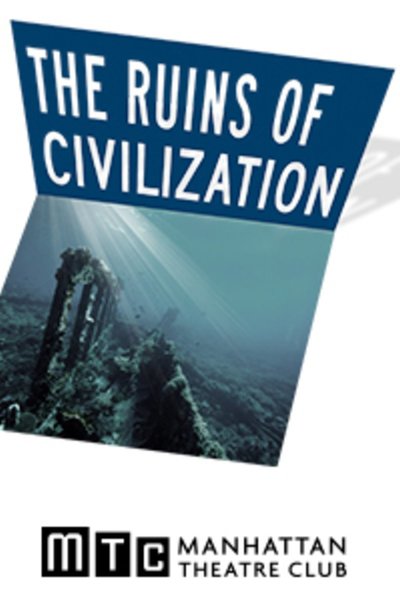
Critic Reviews (14)
"The production sometimes shows the strain of its densely packed thematic weight...The cast only rarely engages us emotionally. Still, for a doomsday play, 'Ruins' is remarkably pleasurable: well paced, well spoken and very deft in planting slyly placed clues as to what the future will be…Much of the pleasure — and horror — of 'Ruins' is in gradually spotting the subtle ways life has changed, and how much it feels like a natural extension of the way we live now."
Read more
"Roxanna Hope and Orlagh Cassidy, as a bureaucrat named Joy, breathe life into side characters, but the central couple is vapidly written and the world they inhabit is thinly drawn. One can only hope for a future in which Skinner has written a second draft of the play."
Read more
"However accurately forecasters have predicted bleakness, one can only hope that the future is less boring than the one depicted in the not too subtly titled 'The Ruins of Civilization'…It's not just that the play's themes feel so distressingly familiar. It's that they're also rendered in tedious, meandering fashion, with a vagueness that's more frustrating than intriguing...Gardiner's listless staging does little to elevate the energy level of the proceedings."
Read more
We need more dystopian plays but ‘Ruins’ isn’t the right one…Skinner tackles weighty topics, from the plight of refugees to government control over women’s bodies, but Margaret Atwood she is not. The show may have worked better as a dark comedy, and Tim Daly’s character gets close to that territory. As is, the production keeps you only mildly engaged where it should terrify, or at least unsettle.”
Read more
"It's a slow grind through Act 1 as Skinner lays all of this groundwork, but it eventually builds to a compelling story…There are moments when Mara feels more like a social-justice thought experiment than a character in her own right. However, Skinner finds the ideal balance between the two in an 11 o'clock confrontation between the foreign protagonist and Silver. Real life rarely affords such an eloquent face-off between the castes — and this one is particularly satisfying."
Read more
“Climate change, privilege, women having control of their bodies and putting up walls, British playwright Penelope Skinner bundles them all together...After her intriguing ‘The Village Bike’ two years ago, ‘The Ruins of Civilization’ seems a letdown, as the dystopian plot plays all too familiarly. Director Leah C. Gardiner's staging is efficient and the ensemble company is fine, but the meandering dialogue and thinly-developed characters create little reason for empathy.”
Read more
“‘Ruins’ is never exactly subtle, but it is effective when it's underplaying its hand...Skinner, alas, doesn't avoid that much beyond intermission...and ‘Ruins’ drowns in boring, preachy pathos...The shift in tone is jarring, in part because the characters transform instantaneously, not because they've earned their evolution...Seeing how all these people deal with that unflinching reality from their unique perspectives is original and, in its way, gripping."
Read more
"Ms. Skinner is to be commended for dishing up a full menu of major world problems…But while 'The Ruins of Civilization' is cleverly trendy it also manages to be both overstuffed and under developed. Too many elements of Ms. Skinner's portrait of life in a ruined civilization are left frustratingly vague...The play's production values are first class…Under Gardiner's direction the grim story moves smoothly to its predictably dark conclusion."
Read more







